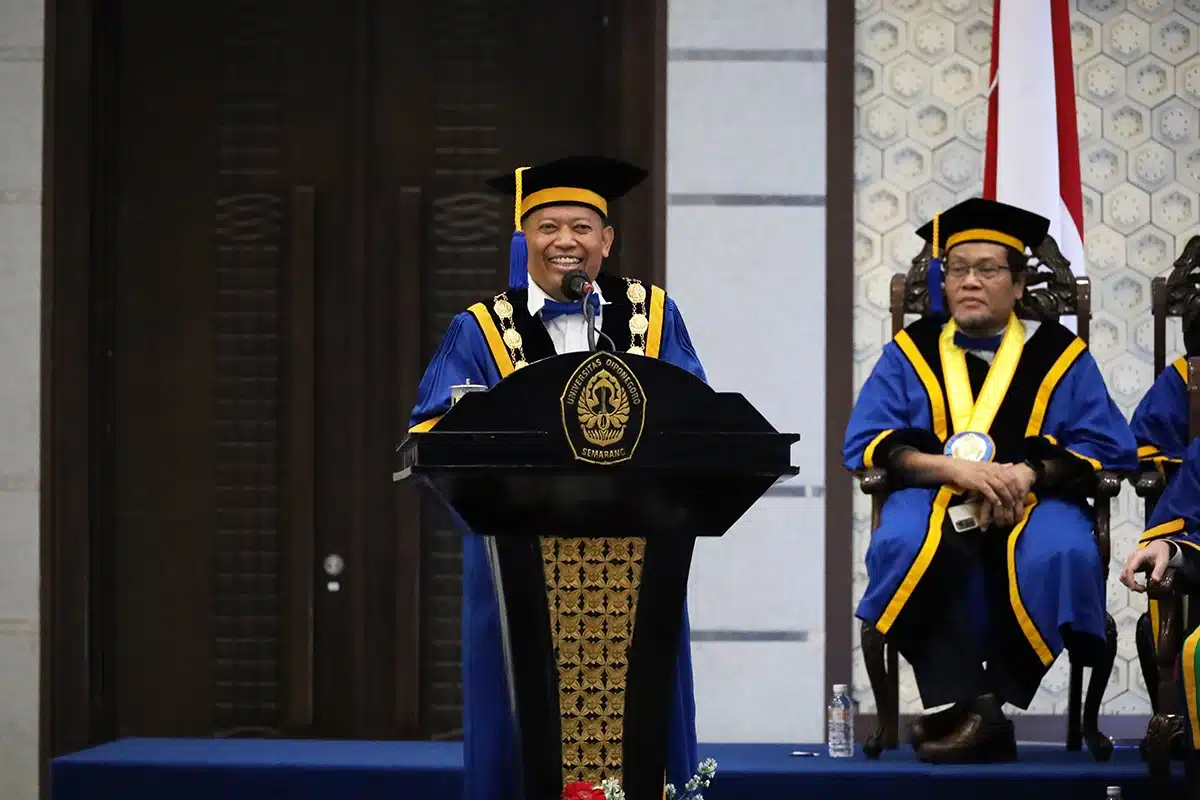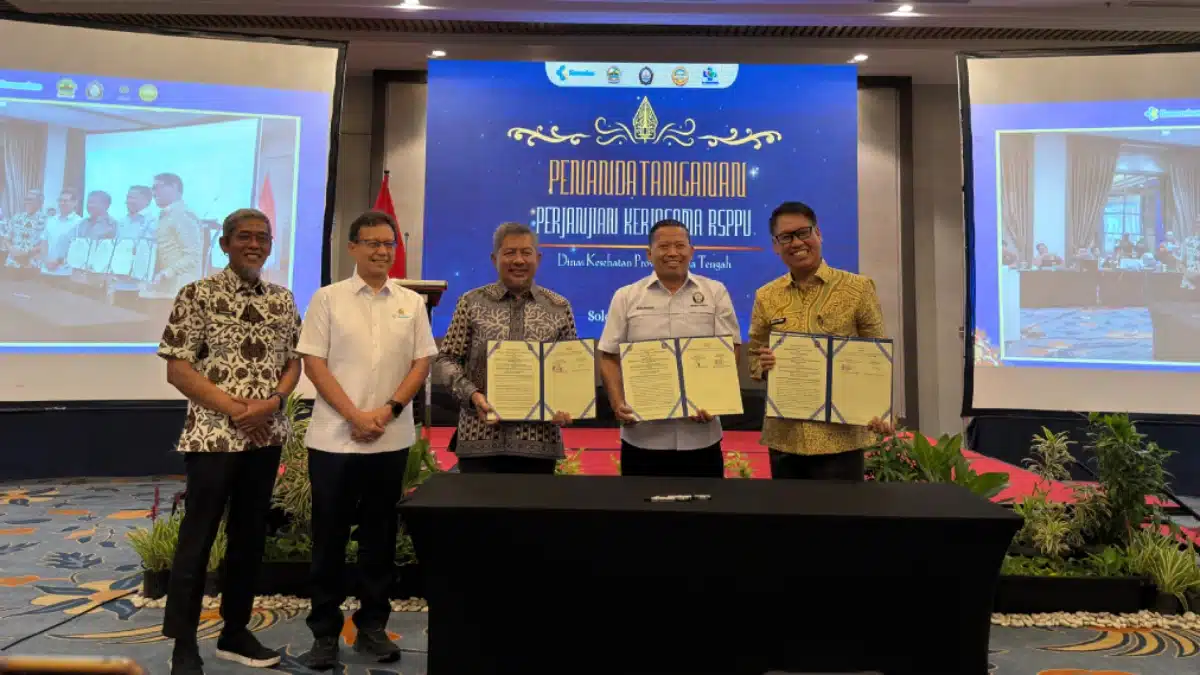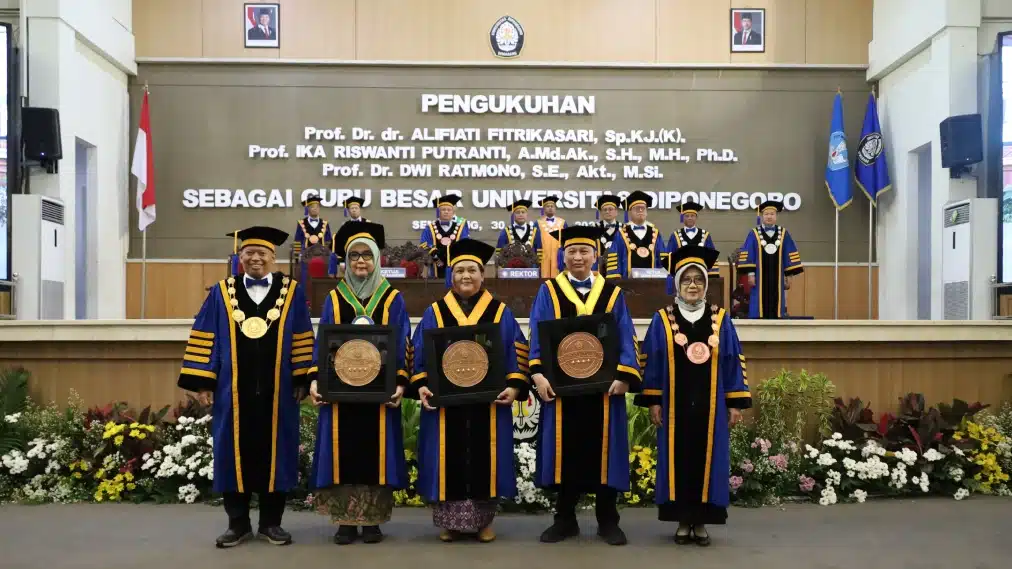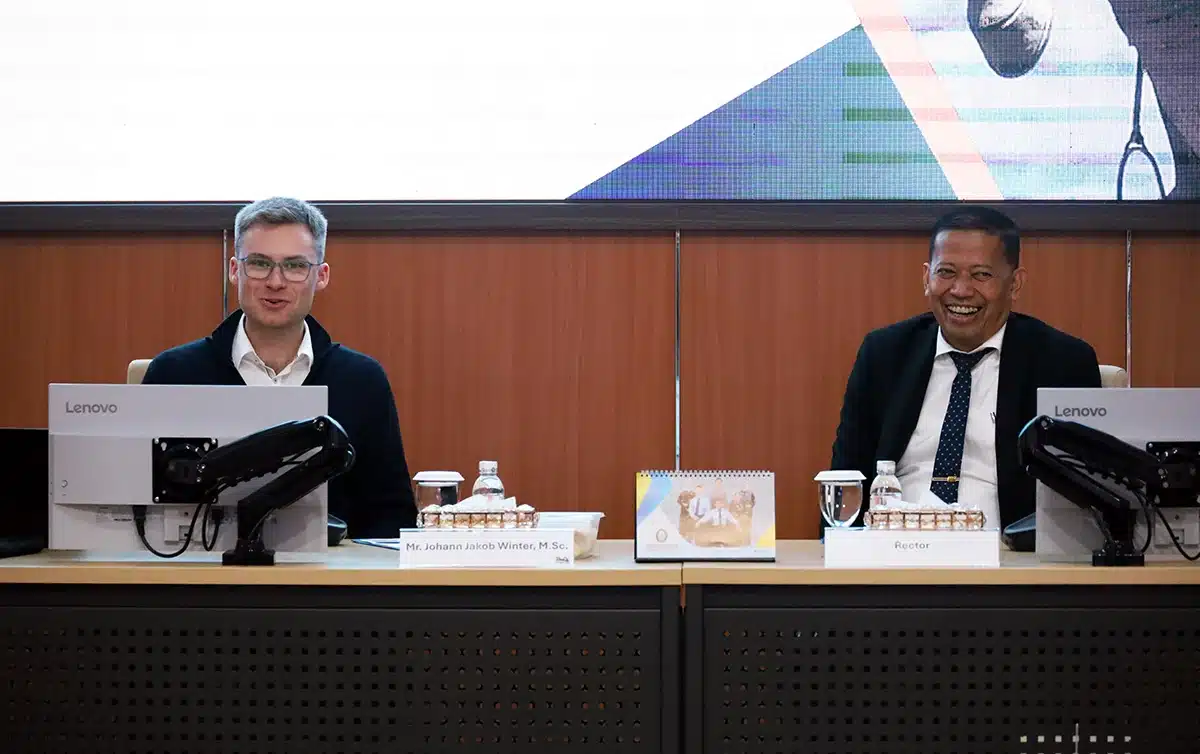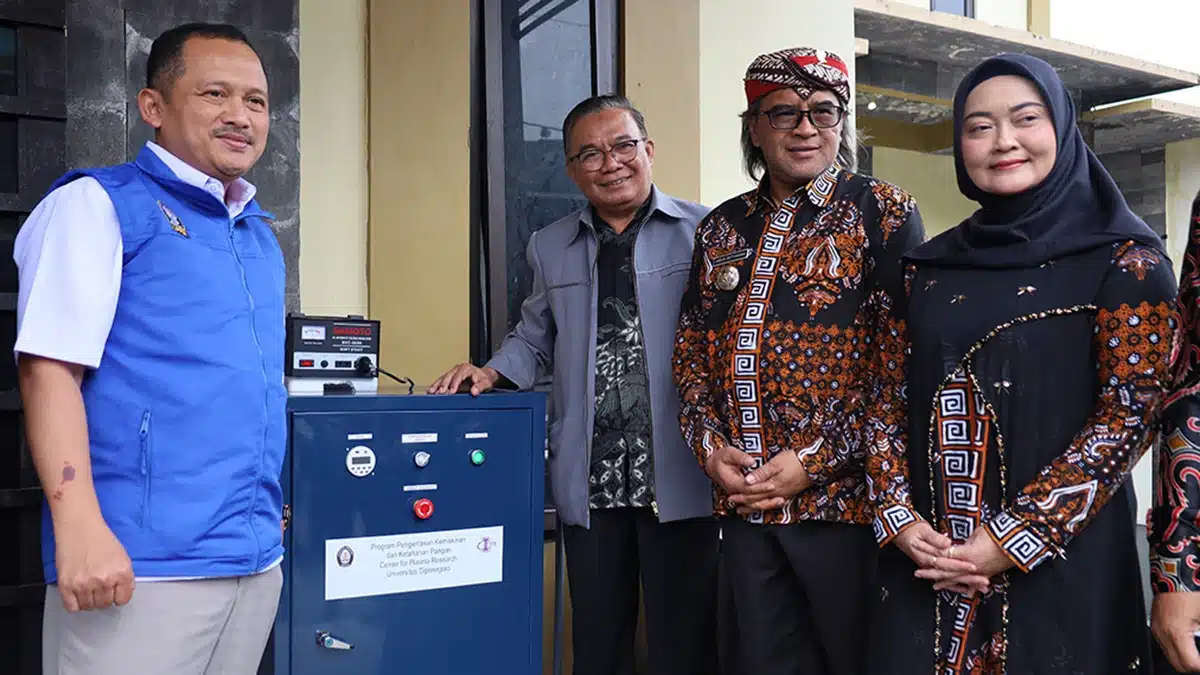Diponegoro University (Undip) has just received an award from the Directorate General of Spatial Planning of the Ministry of Agrarian Affairs and Spatial Planning/National Land Agency (ATR/BPN) on Friday (10/06) at 01.00 PM at the 4th floor of Theater Room, Dean Building of the Faculty of Engineering, Diponegoro University (Undip).
This award is given as a form of appreciation for spatial planning and the implementation of the Independent Learning – Independent Campus (MBKM) program within the Ministry of ATR/BPN, especially the Directorate General of Spatial Planning in 2022. Diponegoro University is considered a higher education institution who excel and actively participate in the implementation of the program.
The event was also attended by the Dean of the Faculty of Engineering, the Deputy Deans of the Faculty of Engineering, the Heads of the Departments of the Faculty of Engineering, the Coordinator of MBKM Undip, Officials at Undip, the Secretary of the Directorate General of Spatial Planning of the Ministry of ATR/BPN along with their staff, and students participating in the MBKM program of the Ministry of ATR/BPN.
In his remarks, the Dean of the Undip Faculty of Engineering, Prof. Ir. Mochamad Agung Wibowo, M.M., M.Sc., Ph.D., welcomed and thanked the Ministry of ATR/BPN, especially the Directorate General of Spatial Planning. “We thank Mr. Farid as the Secretary of the Directorate General of Spatial Planning and the Ministry of ATR/BPN who have made this award as a very beautiful program which received appreciation,” he said.
With the MBKM program from the Directorate General of Spatial Planning, the Ministry of ATR/BPN is expected to increase student competence. “We are trying to improve student competence. I always say don’t settle for only achieving academic certificates and transcripts, look for certificates of expertise and seek experience with internships, things to learn are really amazing,” explained Prof. Agung.
In addition, Prof. Agung hoped that the collaboration with the Directorate General of Spatial Planning of the Ministry of ATR/BPN can continue to be expanded and improved because it is in line with the vision of the Faculty of Engineering, which is to become an excellent research-based faculty. This collaboration will create a synergy between universities, the government, and industry so that they can solve problems together.
“Let’s tighten the line. For the Heads of Departments, please expand cooperation because earlier Mr. Farid has said that later it will be expanded not only for Regional and City Planning Study Program but also for Electrical Engineering, Computer Engineering, Chemical Engineering, Geodesy, and other study programs which can directly join this program and this is something extraordinary to participate in,” concluded Prof. Agung.
Meanwhile, Secretary of the Directorate General of Spatial Planning at the Ministry of ATR/BPN, Farid Hidayat, S.T., M.T., said that the award given to Undip was based on the results of an assessment of several criteria. “We thank you and want to hand over a certificate of appreciation from the Minister of ATR/BPN to Diponegoro University for his participation in the MBKM INSPIRING program,” he said.
“There are a number of criteria used in this assessment, from the many participating universities, then the team from the Directorate General of Spatial Planning conducts evaluations and assessments. Apparently out of all the universities, this award goes to Diponegoro University,” said Farid.
The Ministry of ATR/BPN also supports the MBKM program designed by the Government through the Internship in Spatial Planning for Regional and National Growth (INSPIRING). The main activity of this program is the preparation of a Detailed Spatial Plan (RDTR).
From this evaluation, Farid hoped that there will be an increase and expansion of the MBKM program, not only in one study program but also in other study programs. “We hope that later other study programs will also be able to participate in the MBKM program. We really hope that in the future this collaboration and participation can be improved so that the Link and Match process can take place and be sustainable. So we bridge between the world of campus and the world of work through this MBKM program,” he explained.


